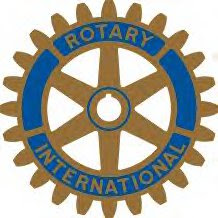
Ms. Gosselin joined UNESCO in 1993 as Director of the Office of Public Information at the Organization’s Headquarters in Paris, France. In 1997, the Secretary-General appointed her as Commissioner General for the United Nations at the World Exposition Expo 1998 on the Oceans in Lisbon, Portugal. Ms Gosselin was once again appointed by the UN Secretary-General and by UNESCO Director General Koichiro Matsuura, in 2002 as the Commissioner General of the United Nations for Expo 2005, Aichi, Japan on the theme of Nature’s Wisdom.
Ms. Gosselin joined the United Nations in 1979. She held several posts at UNICEF in the Information and External Relations Division at the Organization’s Headquarters in New York, as well as, in the Geneva Office for Europe in Switzerland. She returned to New York as Assistant to the Director of the Information Division in 1985.
From 1987 to 1991, she headed the Regional Communication, Information and External Relations programme of the UNICEF Regional Office for West and Central Africa in Abidjan, Côte d’Ivoire. In 1991 she was appointed Director-General of the Communications Branch at the Canadian International Development Agency (CIDA) in Ottawa, Canada.
A History graduate, Ms Gosselin pursued post-graduate studies in Political Science, History and Business Administration at the University of Montreal in Canada. As Editor-in-Chief of a business monthly magazine, published by Southam Business Publications, Ms Gosselin received several national journalism awards. She was appointed at the European Union Canadian Delegation in 1976 as Deputy Head in the Press and Information Service.
As outlined on its website UNESCO functions as a laboratory of ideas and a standard-setter to forge universal agreements on emerging ethical issues. The Organization also serves as a clearinghouse – for the dissemination and sharing of information and knowledge – while helping Member States to build their human and institutional capacities in diverse fields. In short, UNESCO promotes international co-operation among its 193* Member States and six Associate Members in the fields of education, science, culture and communication. *As of October 2007 UNESCO is working to create the conditions for genuine dialogue based upon respect for shared values and the dignity of each civilization and culture. This role is critical, particularly in the face of terrorism, which constitutes an attack against humanity. The world urgently requires global visions of sustainable development based upon observance of human rights, mutual respect and the alleviation of poverty, all of which lie at the heart of UNESCO’s mission and activities.
Through its strategies and activities, UNESCO is actively pursuing the Millennium Development Goals, especially those aiming to:
• halve the proportion of people living in extreme poverty in developing countries by 2015
• achieve universal primary education in all countries by 2015
• eliminate gender disparity in primary and secondary education by 2005
• help countries implement a national strategy for sustainable development by 2005 to reverse current trends in the loss of environmental resources by 2015.
• UNESCO and the United Nations Millennium Goals
UNESCO AND NON-GOVERNMENT ORGANIZATIONS
Since its inception, UNESCO has recognized that non-governmental organizations and foundations which have concerns close to its own play an important role in international cooperation in the service of peoples.
For more than a half-century, UNESCO has woven a valuable tapestry of cooperative relations with a number of such organizations in its fields of competence, thereby enabling it to work with civil society in achieving its objectives and to disseminate through them its democratic and ethical ideals. Currently, UNESCO is enjoying official relations with 310 international NGOs and 19 foundations and similar institutions which are working in the fields of competence of the Organization. In addition to this formal framework, the Organization has been carrying out a range of activities hand in hand with NGOs, not only at international and regional levels, but also at national level.









